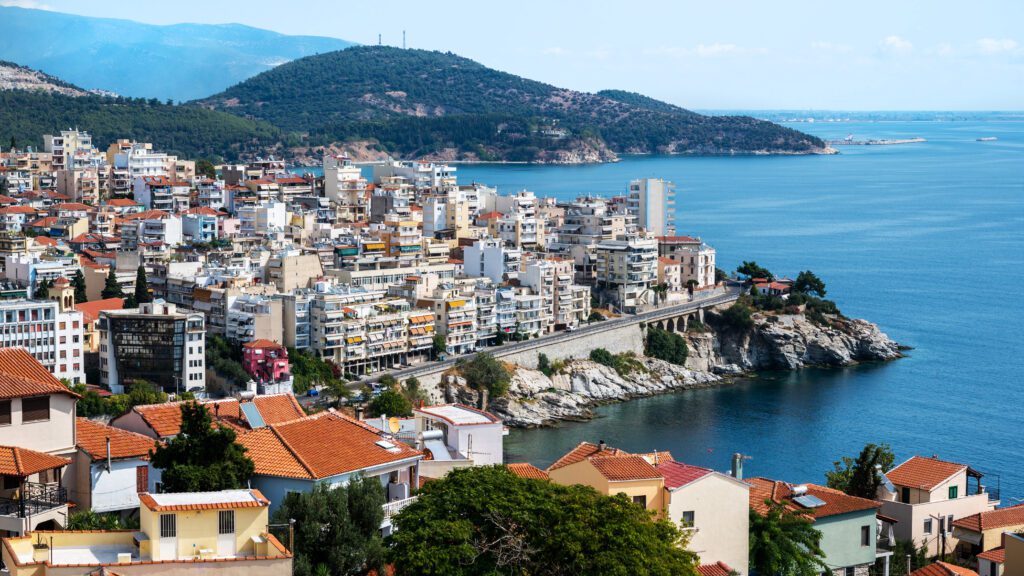

Greece is famous for its stunning coastline and islands, including the Aegean and Ionian seas, and its Mediterranean climate, which is characterized by hot summers and mild winters. The country is also known for its delicious cuisine, including fresh seafood, olive oil, and feta cheese.
Greece is a popular tourist destination, attracting millions of visitors each year with its rich history, cultural heritage, and natural beauty. It is home to several UNESCO World Heritage sites, including the Acropolis in Athens, the Minoan Palace of Knossos, and the medieval town of Rhodes.
In addition to its natural and cultural attractions, Greece is also known for its warm and hospitable people, who have a strong sense of pride in their heritage and traditions. Whether you’re interested in history, culture, food, or adventure, Greece offers something for everyone.
TRAVEL VISA EQUIREMENTS FOR GREECE
Travel visa requirements for Greece vary depending on the traveler’s nationality and the purpose of their visit. As a member of the European Union, Greece follows the EU’s visa policies and allows visa-free travel for citizens of other EU countries.For citizens of non-EU countries, the visa requirements for Greece can vary. In general, travelers from countries such as the United States, Australia, and Canada can enter Greece for up to 90 days without a visa for tourism or business purposes. If a longer stay is required, a visa must be obtained in advance.To obtain a visa, travelers must submit an application to a Greek embassy or consulate, along with the necessary documents, such as a passport, travel itinerary, and proof of sufficient financial means. The processing time for a visa can take several weeks, so it is recommended to apply well in advance of the planned travel date.
It’s important to check the latest information on visa requirements for Greece as the situation can change. It’s also a good idea to consult the embassy or consulate of Greece in your country for up-to-date information on visa requirements.
GEAGRAPHY OF GREECE
Sacred geography is a term used to describe the relationship between religious beliefs and the physical location of sacred sites, such as temples, shrines, and holy cities. Sacred geography can be found in many cultures and religions around the world, including ancient Greece.
In ancient Greece, sacred geography was closely tied to the worship of the gods and goddesses. Each deity was associated with specific locations, such as mountains, springs, or groves, and these places were considered sacred. Pilgrimages were often made to these locations, where people would offer sacrifices and seek divine guidance. The most famous sacred site in ancient Greece was the Temple of Apollo at Delphi, which was considered the center of the world and the place where people could receive guidance from the god Apollo.
The concept of sacred geography continues to be significant in many cultures and religions today, and the physical location of sacred sites continues to be an important part of religious practices and beliefs.
TRAVEL SAFETY FOR GREECE
Greece is generally considered a safe destination for travelers, with low levels of crime and a stable political situation. However, as with any travel destination, it’s important to take precautions to ensure a safe and enjoyable trip.
Personal safety: In tourist areas, petty crimes such as pickpocketing and theft can occur, so it’s important to be vigilant and take steps to protect your personal belongings.
Health and safety: Greece is generally a safe destination from a health perspective, but it’s always a good idea to check the latest health and safety advice before traveling. Travelers should also take necessary precautions to avoid food and water-borne illnesses by only drinking bottled water and eating at reputable establishments.
Natural hazards: Greece is located in a seismic region, and earthquakes can occur. Travelers should familiarize themselves with basic earthquake safety procedures and be prepared for possible aftershocks. Additionally, wildfires can be a concern during the summer months, particularly in rural areas.
By taking common-sense precautions and being aware of the potential risks, travelers to Greece can have a safe and enjoyable trip. It’s always a good idea to stay informed and check the latest advice from local authorities and travel organizations.
MONEY AND BANKS IN GREECE
The authority money in Greece is the Euro (EUR). Greece has a well-developed banking system with a range of services, including ATMs, currency exchange services, and international money transfers.
ATMs: ATMs are widely available in Greece and are a convenient way to withdraw cash. Some ATMs charge a fee for foreign cardholders, so it’s important to check with your bank in advance.
Currency exchange: Currency exchange services are available at banks, exchange offices, and some hotels. It’s a good idea to compare rates and fees before exchanging money.
Credit and debit cards: Credit and debit cards are widely accepted in Greece, and many shops, restaurants, and hotels accept electronic payments. However, it’s a good idea to carry some cash for smaller purchases or for use in remote areas where card acceptance may be limited.
Banks: Banks in Greece are generally open from Monday to Thursday from 8:00 am to 2:00 pm, and on Friday from 8:00 am to 1:30 pm. Some banks have extended hours and may also offer services on weekends.
It’s a good idea to inform your bank of your travel plans before departing, and to carry a backup method of payment in case of emergency. Additionally, it’s always a good idea to familiarize yourself with local banking procedures and regulations before traveling to Greece.


Greek cuisine is known for its fresh ingredients, bold flavors, and Mediterranean influence. The absolute most famous dishes include:
Gyro: A popular street food, a gyro is a type of Greek sandwich made with grilled meat (typically pork, chicken, or lamb), vegetables, and a tangy sauce, all wrapped in a pita bread.
Souvlaki: Similar to a gyro, souvlaki is skewered meat (usually pork or chicken) that is grilled and served with vegetables and a sauce.
Greek salad: A staple of Greek cuisine, the Greek salad is a refreshing dish made with chopped vegetables such as tomatoes, cucumbers, and red onions, topped with crumbled feta cheese and seasoned with olive oil and lemon juice.
Dolmades: Stuffed grape leaves, dolmades are a popular appetizer in Greece, filled with a mixture of rice, herbs, and sometimes meat.
Feta cheese: A staple ingredient in many Greek dishes, feta cheese is a tangy, crumbly cheese made from sheep’s milk or a mixture of sheep and goat’s milk.
In addition to food, Greece is also known for its wine and spirits, including ouzo, a popular anise-flavored spirit, and retsina, a wine that is flavored with pine resin. Greek coffee is also a popular drink, and can be found in cafes and homes throughout the country.
CULTURE
The culture of Greece is rich and diverse, reflecting the country’s long and fascinating history. It has been shaped by various civilizations, including the ancient Greeks, Romans, and Ottoman Turks.
Greece is known for its mythology, philosophy, and art, which have had a profound impact on Western civilization. Greek mythology, with its gods, goddesses, and heroes, has provided inspiration for literature, art, and popular culture for thousands of years. Greek philosophy, including the works of Socrates, Plato, and Aristotle, has influenced Western thought and education.
The country is also famous for its contributions to drama and theater, with the ancient Greek theater being the birthplace of Western drama. Greek music, dance, and festivals are an important part of the country’s cultural heritage and are celebrated throughout the year.
Greek cuisine is known for its fresh ingredients and simple, healthy dishes.
HOW TO TRAVEL AROUND GREECE
There are several options for traveling around Greece, including:
Public transportation: Greece has an extensive public transportation network, including buses, trains, and ferries. Bus and train services connect most major cities and tourist destinations, while ferries serve the islands.
Taxis: Taxis are widely available in Greece and are a convenient way to travel short distances. It’s a good idea to agree on a fare before starting your journey, as taxi meters may not always be used.
Rental cars: Renting a car is a good option for exploring the Greek countryside and visiting remote destinations. Drivers must be at least 21 years old, have a valid driver’s license, and have a credit card in their own name.
Private tours: Private tours are a convenient way to see the best of Greece, with a driver and guide to take you to the top attractions.
Bikes and motorcycles: Bikes and motorcycles can be rented in many tourist areas and are a good way to explore at your own pace.
It’s always a good idea to research your options before traveling to Greece and to consider factors such as distance, cost, and personal preference when making your travel plans. Additionally, it’s important to be aware of local traffic laws and to take steps to ensure.
HOW TO REACH GREECE
There are several ways to reach Greece, including by air, sea, and land.
By Air: Greece is served by several international airports, including Athens International Airport, which is the country’s main hub for international flights. Many airlines offer direct flights to Greece from major cities around the world.
By Sea: Greece is accessible by ferry from several nearby countries, including Italy, Turkey, and Cyprus. There are also regular ferry services between the Greek islands, making it possible to explore multiple destinations by sea.
By Land: Greece can also be reached by land from its neighboring countries, including Albania, North Macedonia, and Bulgaria. However, it’s important to note that the road infrastructure in some areas can be limited, so it’s best to check the latest conditions before making the journey by car.
Regardless of the mode of transportation, it’s important to check the latest information on travel restrictions and requirements before making a trip to Greece.
BEST TIME TO VISIT GREECE
The best time to visit Greece depends on your personal preferences and travel goals. The following are a couple of interesting points:
Summer: The summer months of June, July, and August are the warmest and busiest time of year in Greece. Temperatures can reach up to 30°C (86°F) and beaches, islands, and tourist destinations are crowded. This is a good time to visit if you’re looking for warm weather, nightlife, and outdoor activities.
Spring and autumn: Spring (April to May) and autumn (September to October) are more temperate seasons in Greece, with milder temperatures and fewer crowds. This is a good time to visit if you’re interested in exploring the countryside, visiting historical sites, and experiencing local culture.
Winter: The winter months of November to March are the coldest and quietest time of year in Greece. Many tourist destinations, including the islands, are less crowded, and prices are often lower. This is a good time to visit if you’re interested in avoiding crowds and experiencing a more authentic side of Greece.
It’s always a good idea to check the local weather forecast before traveling to Greece and to pack accordingly. Additionally, it’s important to be aware of local holidays and peak travel seasons, as some destinations may be more crowded or have limited services during these times.




